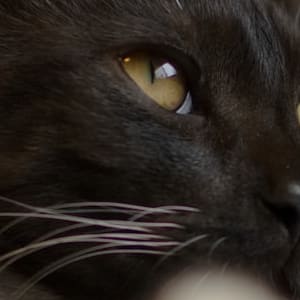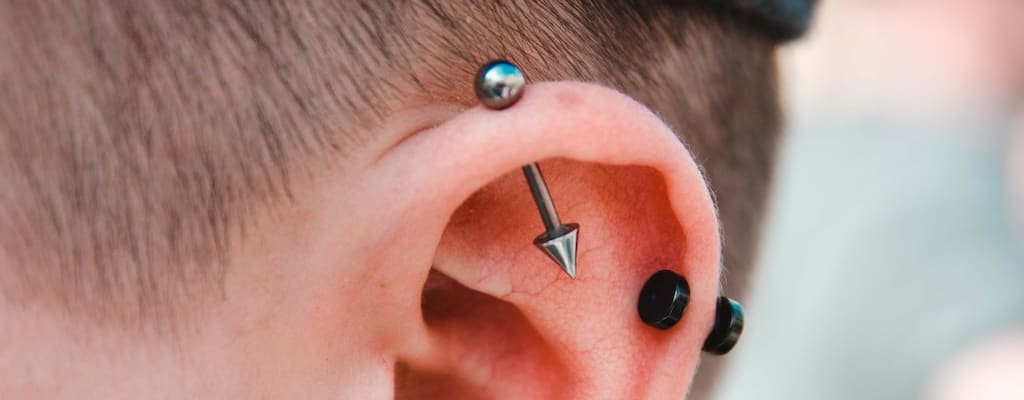flea in one’s ear: Idiom Meaning and Origin
What does ‘flea in one's ear’ mean?
The idiom flea in one's ear is used to describe a nagging or persistent feeling or thought that won't go away, often causing discomfort or unease.

Idiom Explorer
The idiom "thorn in the flesh" refers to a persistent annoyance or problem that is difficult to get rid of.
The idiom "keep one's ears open" means to be attentive and listen carefully for information or opportunities.
According to my extensive research as a specialist in idioms, the idiom "itchy feet" refers to a strong desire or restlessness to travel or move around. This expression is often used to describe someone who is eager to explore new places or embark on new adventures.
The idiom "itch the ditch" means to feel an intense need or desire to leave or escape a difficult or uncomfortable situation.
The idiom "in one's head" means to have a thought, idea, or plan solely within the mind without expressing or sharing it with others.
The idiom "in a pig's patoot" means in a difficult or unpleasant situation. It is often used to express frustration or annoyance. The exact origin of this phrase is unclear, but it likely refers to the idea of being in an undesirable or uncomfortable position, similar to being in a pig's hindquarters.
The idiom "head-scratching" refers to a situation or problem that is confusing or puzzling, often causing people to think deeply or scratch their heads in an attempt to understand or find a solution.
The idiom "have the wolf by the ear" means to be in a dangerous or precarious situation, where letting go or holding on both pose a risk. It carries the idea of being trapped or caught in a difficult and risky position with limited options and potential harm.
The idiom "have one's ears pinned back" means to be severely reprimanded or criticized for something one has done wrong. This phrase originated from the physical act of pinning back a dog's ears to punish and correct its behavior.
The idiom "frog in one's throat" refers to a temporary hoarseness or difficulty in speaking caused by nervousness or a dry throat.
Ear Whispers
The idiom "flea in one's ear" is an expression commonly used to describe receiving a strong or persistent suggestion, advice, or criticism that is intended to change one's behavior or thinking. It can be traced back to medieval times, and the metaphor likely originates from the irritating and persistent nature of fleas. Just as fleas cause discomfort and annoyance when they are present, the idiom implies that the suggestion or advice is similarly bothersome and hard to ignore.
The origins of this idiom can be found in English literature from the 16th century, and it has appeared in notable works such as Shakespeare's plays, including "Othello" and "The Merry Wives of Windsor." Its presence in such influential writings indicates its popularity and lasting impact throughout history.
During the 18th century, the idiom gained further prominence when the French philosopher and mathematician René Descartes used a similar expression, "la puce à l'oreille," in one of his writings. This suggests that the idiom may have also existed in other languages before being adopted into English. Regardless of its origin, the idiom has become a part of the common lexicon and is widely used in both formal and informal contexts.
Now, let's explore how the idiom "flea in one's ear" is related to other idioms that share a similar meaning or concept. One related idiom is "burr in one's saddle," which is used in a similar way to convey the idea of persistent irritation. Just as a burr in one's saddle can cause discomfort and annoyance for a rider, a suggestion or criticism that feels like a flea in one's ear can have a similar effect. Both idioms highlight the enduring nature of the irritation or annoyance.
Another related idiom is "thorn in the flesh." This expression is often used to describe something or someone that causes ongoing irritation or difficulty. Similarly, a suggestion or advice that feels like a flea in one's ear can be seen as a metaphorical thorn in the flesh, persistently nagging at one's thoughts and creating a desire for action or change.
Lastly, we have the idiom "bee in one's bonnet." This expression is used to describe someone who is obsessed or preoccupied with a particular idea or issue. It implies that the idea or issue feels like a buzzing bee constantly in one's thoughts. Similarly, a suggestion or advice that feels like a flea in one's ear can occupy one's mind, leading to a strong desire to address the issue or take action.
The idiom "flea in one's ear" is a widely-used expression that conveys the idea of receiving a strong or persistent suggestion, advice, or criticism. Its origins can be traced back to medieval times, and it has appeared in notable works of literature. The idiom is related to other idioms such as "burr in one's saddle," "thorn in the flesh," and "bee in one's bonnet," which all convey the concept of persistent irritation or preoccupation. These idioms serve as colorful and relatable metaphors that enrich our language and allow us to express complex ideas and emotions in a concise and memorable way.
Example usage
Examples of how the idiom flea in one's ear can be used in a sentence:
- After hearing the motivational speaker, he had a flea in his ear and decided to pursue his dreams.
- The professor's lectures always put a flea in her ear and inspired her to study harder.
- Her friend's constant complaints about her job put a flea in her ear, leading her to look for a new job.
More "Confusion" idioms



